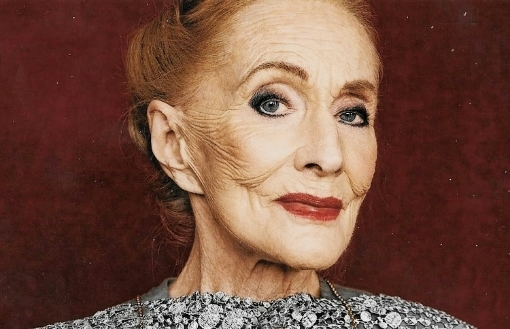Today, 7 May 2023, the opera singer and actress Soňa Červená died. Her operatic beginnings are associated with the Brno Opera, where she also returned in recent years.
Mezzo-soprano Soňa Červená was born on 9 September 1925. Her father was the writer and cabaret performer Jiří Červený, her grandfather was the famous Hradec Králové producer and inventor of brass instruments Václav František Červený. The beginnings of Soňa’s artistic career reach back to the Liberation Theatre (Osvobozené divadlo) and the role of Káči in Voskovec and Werich’s The Magical Pot (Divotvorný hrnec). She also starred in films. Her ambitions were always related to opera, however, and her first opera engagement was at the Brno (now Janáček) Opera House, where she started in supporting roles in Rusalka. She moved here in 1951, when the director was Zdeněk Chalabala. She sang, for example, Varvara in Káťa Kabanová, Olga in Onegin, and Dorabella in Cosi fan tutte. Most of all, though, she played Carmen, which subsequently accompanied her throughout her career. In 1958 she moved from Brno to Berlin to the Berlin State Opera, from where she emigrated in 1962.
For eleven seasons she sang at the San Francisco Opera. She also appeared in opera houses in Vienna, Milan, Amsterdam, Barcelona, Brussels, Lisbon, and all the major German opera houses. She was also a regular guest at leading European and American venues and international festivals such as Bayreuth, Salzburg, Glyndebourne, and Edinburgh. She returned to her homeland after 1989. After 40 years in exile, she resumed her operatic career here. At the National Theatre in Prague, for example, she created the symbolic character of Fate in Janáček’s opera Fate directed by Robert Wilson, the central character in the chamber opera by Aleš Březina and Jiří Nekvasil Tomorrow Will Be. . . (Zítra se bude… the story of the 1950 death sentence on Dr. Milada Horáková), the role of Elina Makropulos in Robert Wilson’s drama production of Čapek’s drama The Makropulos Affair, and as Time in Robert Wilson’s project 1914. At the New Stage (Nová scéna) she played a character in Březina’s chamber opera Toufar.
During her time around the world, she was instrumental in promoting Janáček’s works, for example, exemplary interpretations of his works in Czech and accurate translations of sheet music editions.
Soňa Červená returned to Brno at the age of 92. She played the role of the Countess in The Queen of Spades (Piková dáma, directed by Martin Glaser).













No comment added yet..